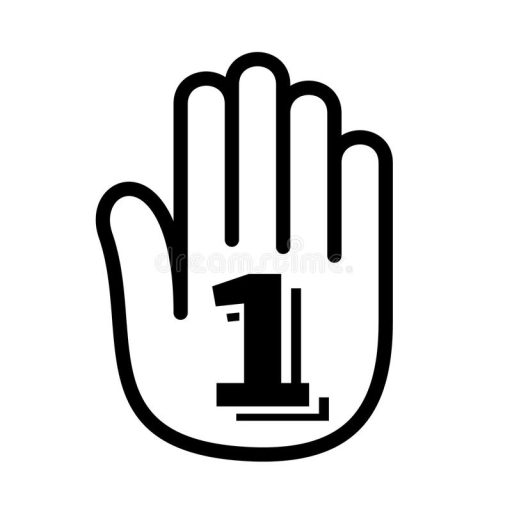Applying for a personal loan can be a transformative step in achieving your financial goals, whether you’re consolidating debt, funding a major purchase, or covering unexpected expenses. However, the first hurdle in accessing this financial tool is ensuring you have all the essential documents for your personal loan application ready. Having these documents in order not only speeds up the process but also increases your chances of approval.
Navigating the world of personal loans can be complex, especially with varying lender requirements. But understanding the basic documentation you need can make the journey much smoother. From proof of identity and income to credit history, gathering these essential documents for your personal loan application is crucial to present yourself as a reliable borrower.
In this post, we will explore the key documents you need to assemble before you even start your application. By preparing in advance, you avoid last-minute scrambles and demonstrate your preparedness and eligibility to potential lenders. Read on to learn more about each document and why they are indispensable for your personal loan application.
Proof of Identity
One of the first documents lenders will request is proof of identity. This document verifies that you are who you claim to be and often includes a government-issued ID such as a passport, driver’s license, or identity card. A clear, legible copy ensures that your application process is not delayed due to verification issues.
Lenders need to confirm your identity to prevent fraud and ensure that they are dealing with the correct individual. Ensure the document is up-to-date to facilitate a smooth application process. Access Step-by-Step Guide to Applying for a Personal Loan to see more. A valid ID must not be expired and should match the other details provided in your application.
In addition to a primary ID, some lenders may require a secondary form of identification. This could include a social security card or a utility bill that features your name and address. Having these documents prepared in advance will demonstrate your sincerity and readiness to engage in a financial contract.
Proof of Income
Proof of income is essential for lenders to assess your ability to repay the loan. Typically, this includes recent pay stubs, tax returns, or bank statements. These documents provide a snapshot of your financial situation and help lenders determine the maximum loan amount you can handle.
For self-employed individuals, showing proof of income may be slightly different. In these cases, tax returns or even a profit and loss statement compiled by an accountant might be required. Consistent and stable income documentation increases your credibility in lenders’ eyes.
Employers often provide letters confirming income, which can be another useful document. This not only details your earnings but also confirms the stability of your job, further reassuring lenders of your ability to meet repayment obligations.
Credit History
Your credit history is a critical component in the loan approval process. Lenders use this to gauge your creditworthiness and assess the risk of lending money to you. A credit report, which can be obtained from credit bureaus, details your credit score and any past borrowing behavior.
An exemplary credit history can significantly boost your chances of getting approved for a loan. Conversely, a poor credit history could make it challenging to secure favorable terms. Thus, reviewing your credit report before applying for a loan is advisable to ensure accuracy and address any discrepancies.
Lenders may have different thresholds when it comes to acceptable credit scores. Understanding where you stand can help you negotiate better loan conditions or decide if additional documentation might be needed to offset a lower credit score.
Residential Proof
Residential proof is another crucial document required by lenders, showcasing your stability and roots within the community. Commonly, a utility bill or a rental agreement serves this purpose, offering proof of your current living situation.
This document helps lenders understand your level of financial stability and reliability, as frequently changing addresses might indicate instability. Ensure the document is recent and features your full name and address.
Additionally, ownership documents for a house can serve this purpose. If you own property, it can be leveraged as a positive factor in your loan application, demonstrating financial stability and asset security.
Purpose of the Loan
While not always mandatory, some lenders may ask for information regarding the purpose of your loan. This could include estimates or contracts related to home improvements or a wedding budget, for instance.
The purpose helps lenders categorize the loan and assess the risk associated with lending for that particular reason. Providing detailed, realistic estimates can support your application, showcasing responsible borrowing behavior.
Moreover, understanding the purpose of the loan can allow lenders to tailor their offerings to better suit the borrower’s needs, potentially offering more favorable terms if the loan aligns with their criteria.
Personal Loan Interest Rates and Fees
| Loan Type | Interest Rate | Fees |
|---|---|---|
| Unsecured Personal Loan | 5% – 12% | 1% – 5% origination fee |
| Secured Personal Loan | 4% – 8% | No origination fee |
| Short-term Loan | 15% – 25% | $30-$50 fee for each $100 borrowed |
Conclusion
In conclusion, having all essential documents ready for your personal loan application is paramount. Not only does preparation enhance your chances of approval, but it also indicates your reliability as a borrower. By understanding and gathering these crucial documents—ranging from proof of identity and income to understanding interest rates and fees—you lay a strong foundation for successfully securing the loan you need.
Ultimately, being well-prepared empowers you to act quickly, negotiate better terms, and achieve your financial objectives with less hassle. You can consult the official website of Moola to compare interest rates and choose the best loan for you.
